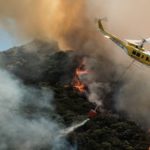Secretary of State for Business, Energy and Industrial Strategy, Kwasi Kwarteng said the aviation, aerospace and defence industry was set to for a “stronger year” in 2021 following the economic shutdown of 2020.
Kwarteng was in conversation with Katherine Bennett, Senior Vice President at Airbus and Vice President for Aerospace for ADS Group at ADS Live 2021, which brought together the UK’s aerospace, defence, security and space to discuss key themes for the sectors: resilience; innovation and opportunity.
Kwarteng said the industry was important to the UK “as something which drives not only economic growth in this country, but is at the cutting edge of innovation.” With the Covid-19 pandemic bringing the global economy to a virtual standstill, he described 2020 as “a really difficult year for the sector” as well as the UK in general. He gave three “solid reasons for a more optimistic outlook towards 2021.”
Kwarteng said: “Firstly, we’ve got a vaccine rollout that’s been successful, and actually promises the lead that promises the prospect of reopening the economy in the summer of this year.”
Brexit – issue which has “dogged” the UK for five years
The second issue, which Kwarteng said had “dogged us for five years,” was the Brexit debate. He explained: “People were coming and going, people were talking about no deal, they were talking about a second referendum, we’ve had two general elections, we have a hung Parliament, all of that, I think, has been put to an end really with the free trade agreement that we negotiated with the EU at the end of 2020.”
He said the initial deal had now afforded industry some degree of certainty. “Now, that doesn’t mean all problems would go away,” he said. “There are still ongoing conversations, negotiations, shared ideas, there are ongoing issues, but if you look at the broad direction of where we’ve come from, from 2016 until now, I think the Brexit issue is much less uncertain now we’ve got an actual deal than was the case for most of that time, between 2016 and the end of 2020.”
Decarbonisation will create challenges and opportunities
Kwarteng said the third reason for optimism was a 10 point plan published by the Prime Minister Boris Johnson at the end of November 2020, which was reinforced by the energy white paper. Kwarteng highlighted developments such as the development of sustainable fuels and establishment of the Jet Zero Council. He said “the decarbonisation agenda does pose challenge to the industry, but it also represents an opportunity.”
Kwarteng said there were still “outstanding challenges” for aviation and aerospace, particularly with regards to climate change. “I think that trying to get the right balance in terms of growing the industry, but also being mindful of the climate change agenda, I think that’s a tricky balance, perhaps, to strike. But I’m sure, with the goodwill of many people around this virtual table in this virtual meeting and a great effort from people, leaders, like Katherine and others, I think we can get a very good rapport and come up with some really good solutions in terms of climate change.”
He added that the prospects for the industry were broadly “very encouraging” for the UK industry.
“We’ve got some great industries, represented here, most particularly in aviation. And in aviation, and aerospace, we not only have a thriving civil aviation sector but we also have potentially, well, already, a world beating military aviation section and that’s something that is fed into our traditions of innovation, of science, and of developing defence capability, soft power around the world. All of these things – diplomacy, economics, travel – all of these things combine to put us in a very good place, I think, as far as the aerospace industry is concerned.”
Missed it? Click to watch the whole of ADS Live

